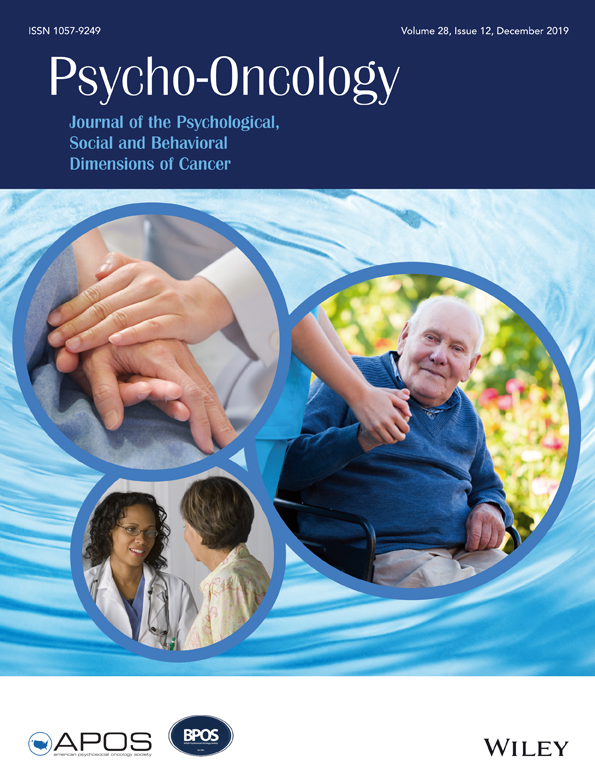Validation of a biopsychosocial distress screening tool, “You, Your Family and COH Are a Team”
Abstract
Objective
We examined the psychometric properties of a biopsychosocial screening tool “You, Your Family and City of Hope are a Team” implemented via touchpad technology (YYFcore03) at a cancer center in newly diagnosed patients and patients on active treatment, with the primary objective to evaluate concurrent validity with screening criterion measures of depression and anxiety.
Methods
YYFcore03, Patient Health Questionnaire [PHQ-9], and Generalized Anxiety Disorder [GAD-7] were administered to 608 patients in out-patient clinics. A subset of 158 patients responding a second time to YYFcore03 at a subsequent visit were included for assessing reliability. Exploratory factor analysis followed by confirmatory factor analysis were conducted to identify underlying factors. The identified factor of psychological distress (PD) was then correlated with PHQ-9 and GAD-7 for concurrent validity and to estimate sensitivity-specificity. Demographic and clinical variables associated with the PD score were identified. Test-retest reliability of PD score was examined.
Results
Factor analysis suggested three factors, including PD. Correlations between PD score and PHQ-9 and GAD-7 were 0.63 and 0.67, respectively. Treating PHQ-9 and GAD-7 as criterion measures, PD score had a sensitivity of 0.77 for identifying depression and 0.86 for identifying anxiety. Younger age, lower household income, and cancer (vs noncancer) diagnosis were independently associated with worse PD score. Omega total for composite reliability was 0.88; intraclass correlation was 0.78.
Conclusions
The YYFcore03 administered via touchpad is a valid instrument for identifying PD in newly diagnosed patients and patients undergoing active treatment.




